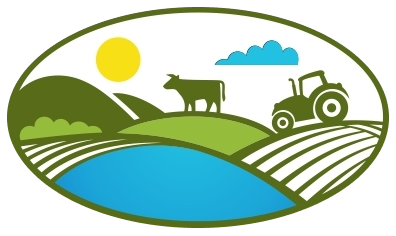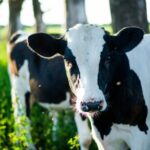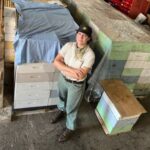Sow the seeds for a rewarding future in agriculture! High school students can apply today to join our farming internship program for hands-on learning.
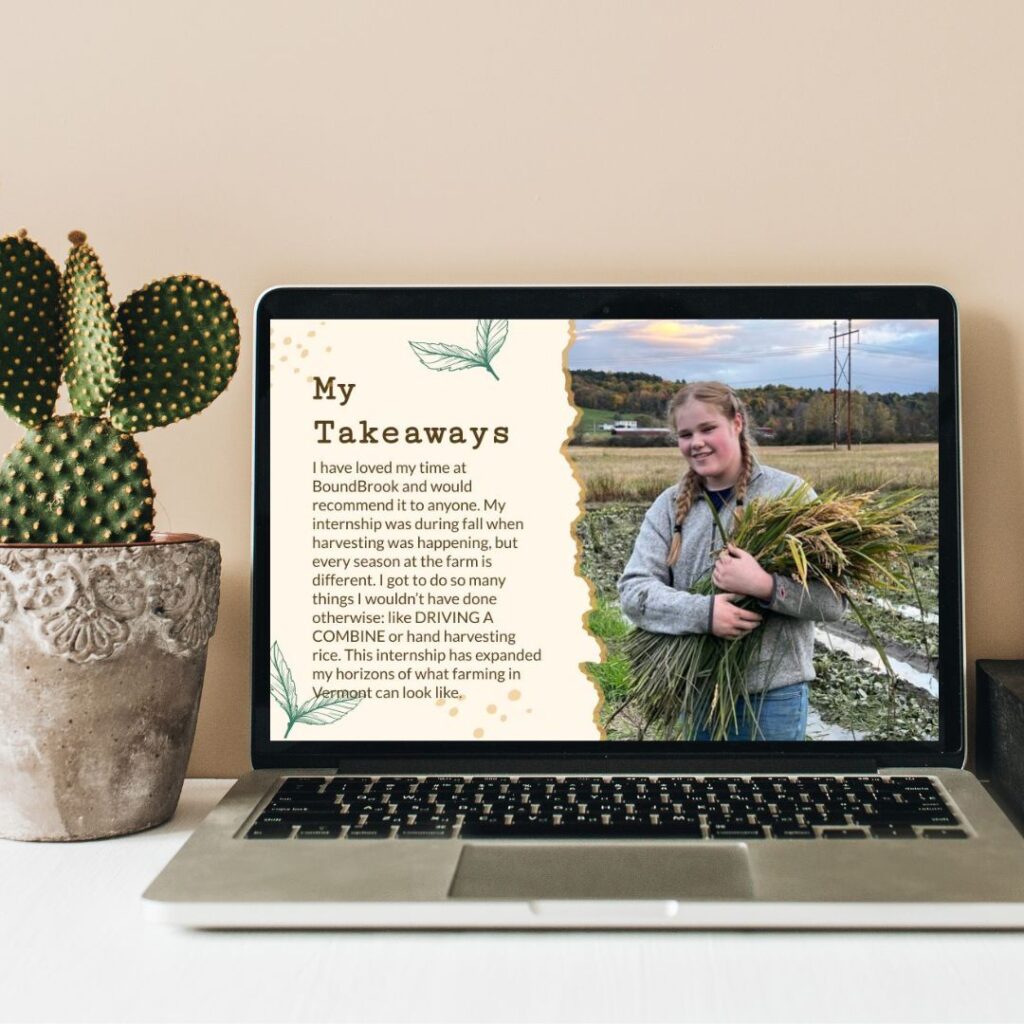
Students in our internship program will:
- Meet and interact with local farmers
- Develop a broad understanding of farm operations
- Learn about agricultural practices to support water quality in the Lake Champlain Basin
- Share what they learn with younger students in their district
The Details
- 16-hour program on a flexible schedule
- $400 total stipend
- Up to 20 students will be accepted into the program
- Open to high school students
Info Sessions
Middlebury Union High School | 10th & 11th grade students are invited to join us on Thursday, February 8 at 11:15 am at the school counseling office to learn more about our program!
Hannaford Career Center | We’re visiting the Sustainable Agriculture class on Tuesday, February 13 at 9:00 a.m. and 12:00 p.m.
Hannaford Career Center | We’re visiting the Intro to Agriculture class on Monday, February 26 at 9:00 a.m.
Mt. Abraham | We’re visiting during the FIT block on Tuesday, March 19, 2:17-2:47 p.m.
Participating Farmers
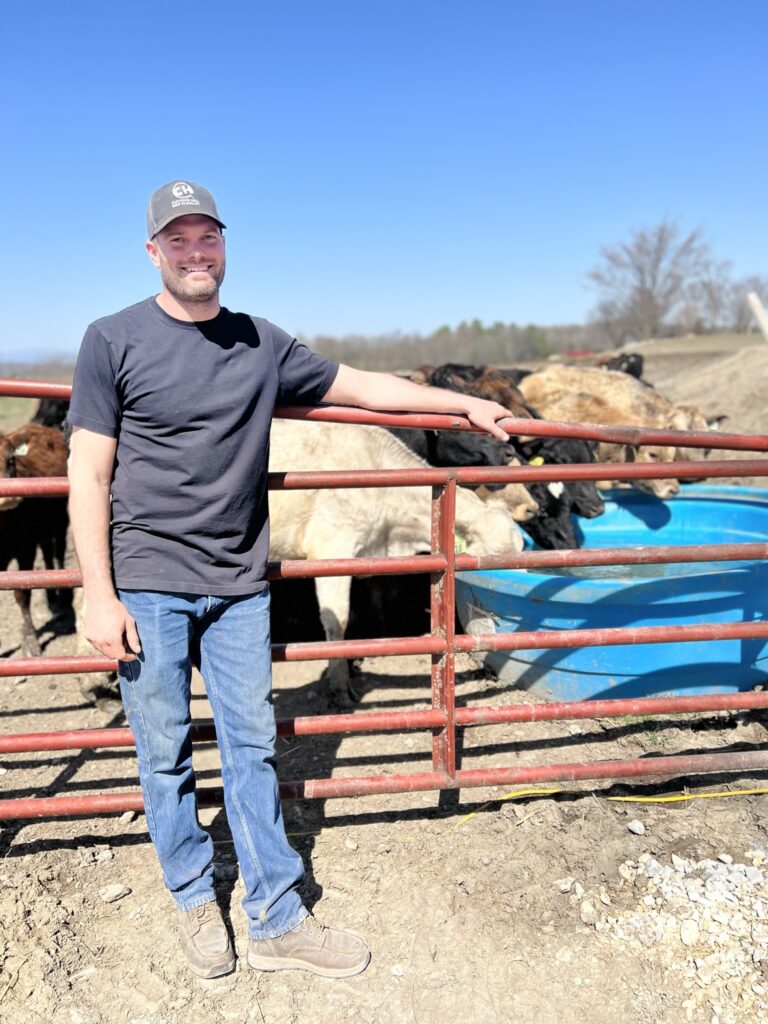
Ramsay Mellish, Cutting Hill Beef Company – Cornwall
Cutting Hill Beef Company’s mission is to transform New England agriculture by revitalizing the land with grazing animals on open pastures, fostering healthier soils and sequestering carbon, to provide families in the Northeast with nutrient-rich, sustainable, and delicious food. Meet Ramsay
Dan Wulfkuhle, Wood’s Market Garden – Brandon
Wood’s Market Garden is a 165-acre farm, producing roughly 30 acres of certified organic vegetables, fruits, herbs, and flowers every year. The farm has been an iconic destination and mainstay of the local community for generations, dating back to the early 1900s when the Wood Family first started farming here. Meet Dan
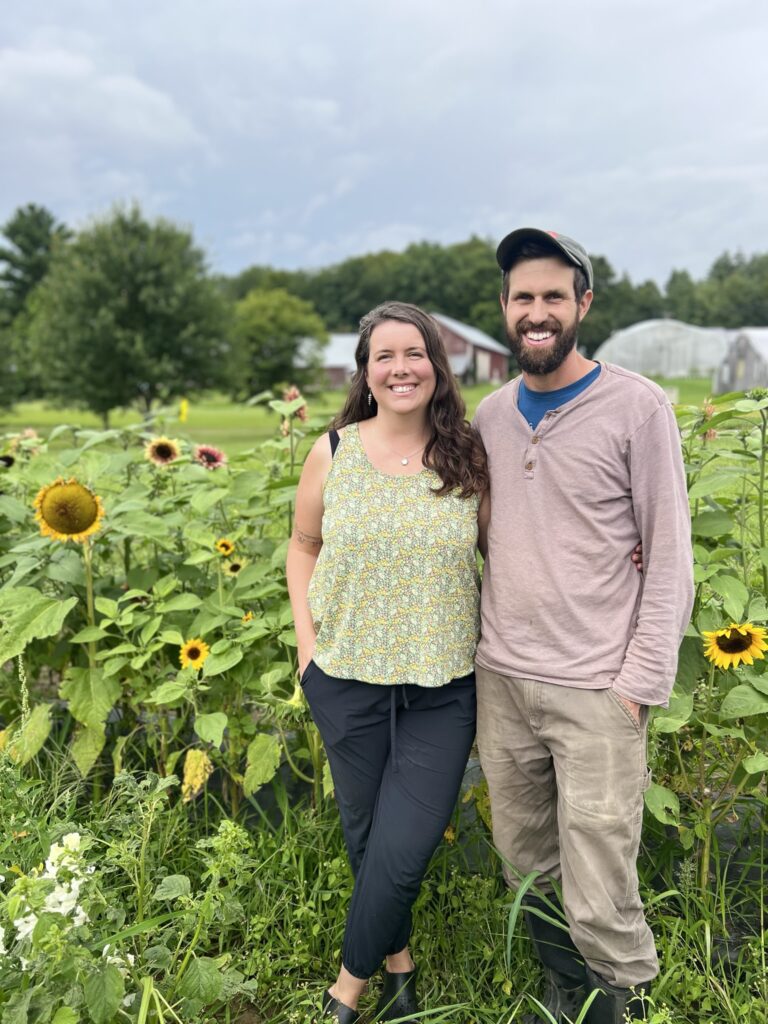
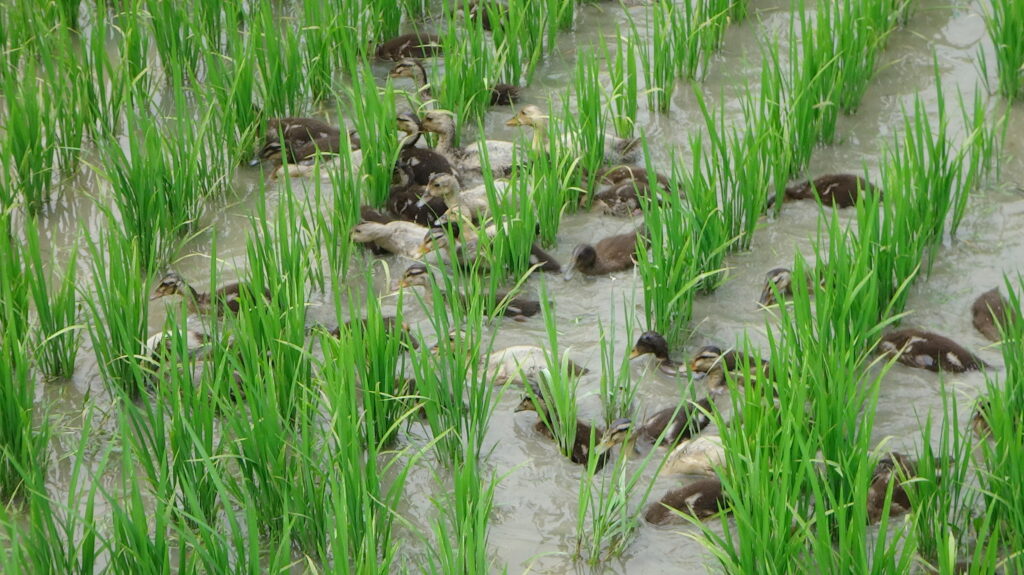
Erik Andrus, Boundbrook Farm – Vergennes
Since 2010, Boundbrook Farm has been working towards an adaptive model for heavy soils and a shifting climate, and have been planting rice using organic methods. They’re now expanding cold-climate ecological rice farming to the commercial scale, in partnership with other growers and with counsel from practitioners in Japan. Meet Erik
Brian & Cindy Kayhart, Chalker Farm – Vergennes
As a second generation family farm, the Kayharts chose to diversify their operation instead of growing it. They have developed a beef herd and have added pigs and chickens. Farming is not just their job, it is their way of life, and they put everything they have into creating the most enjoyable and reliable products to their customers. Meet Brian & Cindy
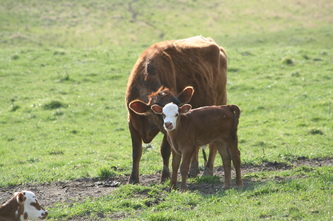
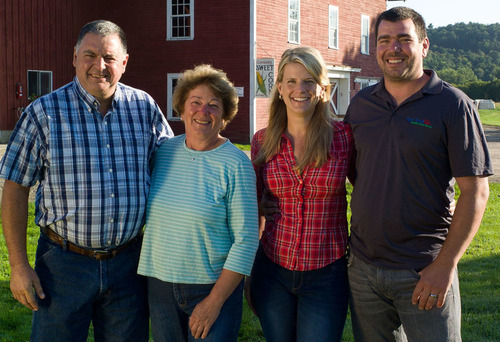
Dave Conant, Conant’s Riverside Farms – Richmond
The Conant Family has been farming since 1846! Today, their farm encompasses more than 1000 acres, with the fifth and sixth generations work hand-in-hand. Together they produce dairy, sweet corn, pumpkins, and flowers. Meet Dave Conant
Brian Kemp, Mountain Meadows Farm – Sudbury
Mountain Meadows Farm raises organic beef and has been nationally recognized for their conservation efforts. Brian serves as President of the Champlain Valley Farmer Coalition Board of Directors. Meet Brian
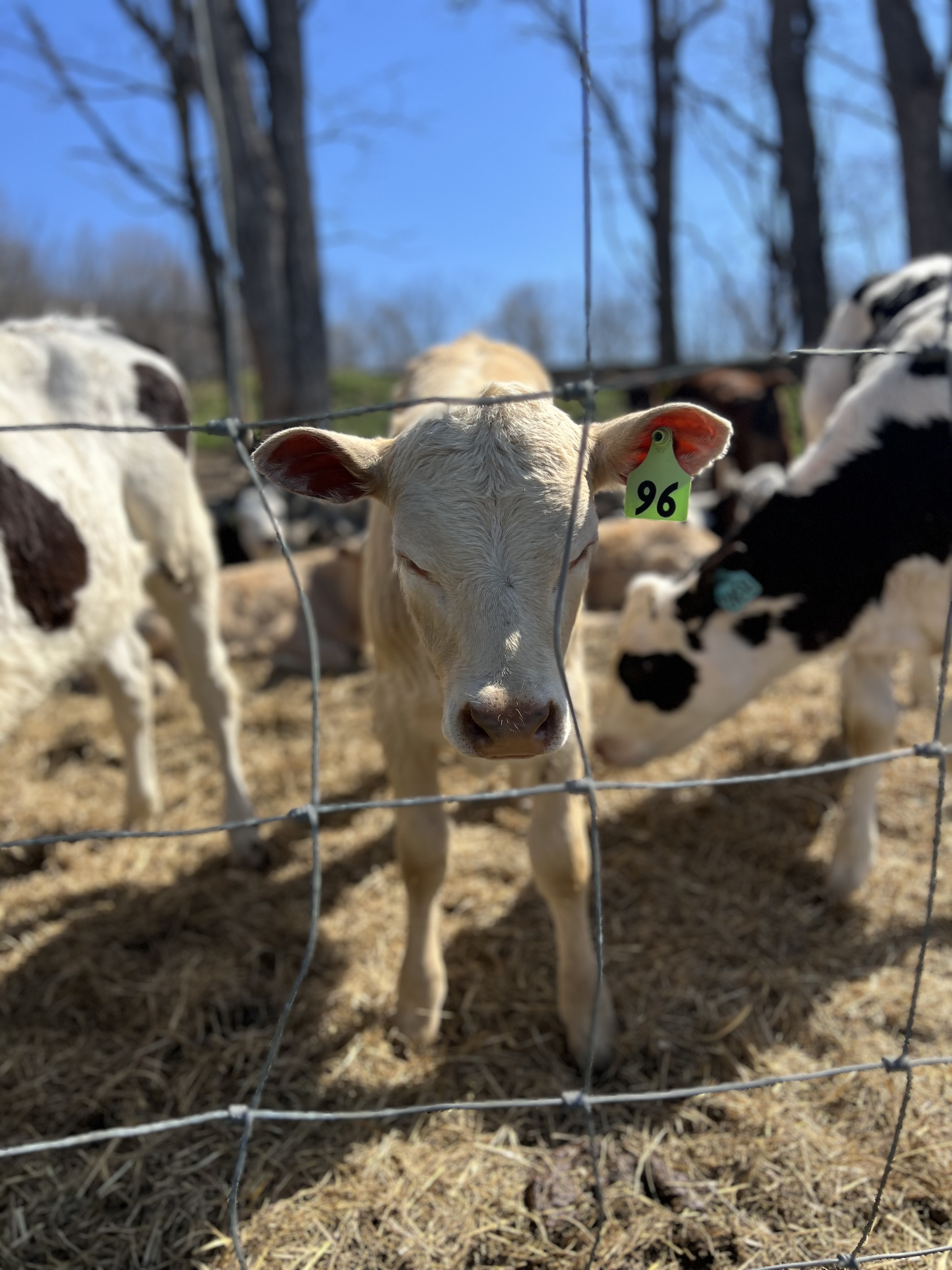
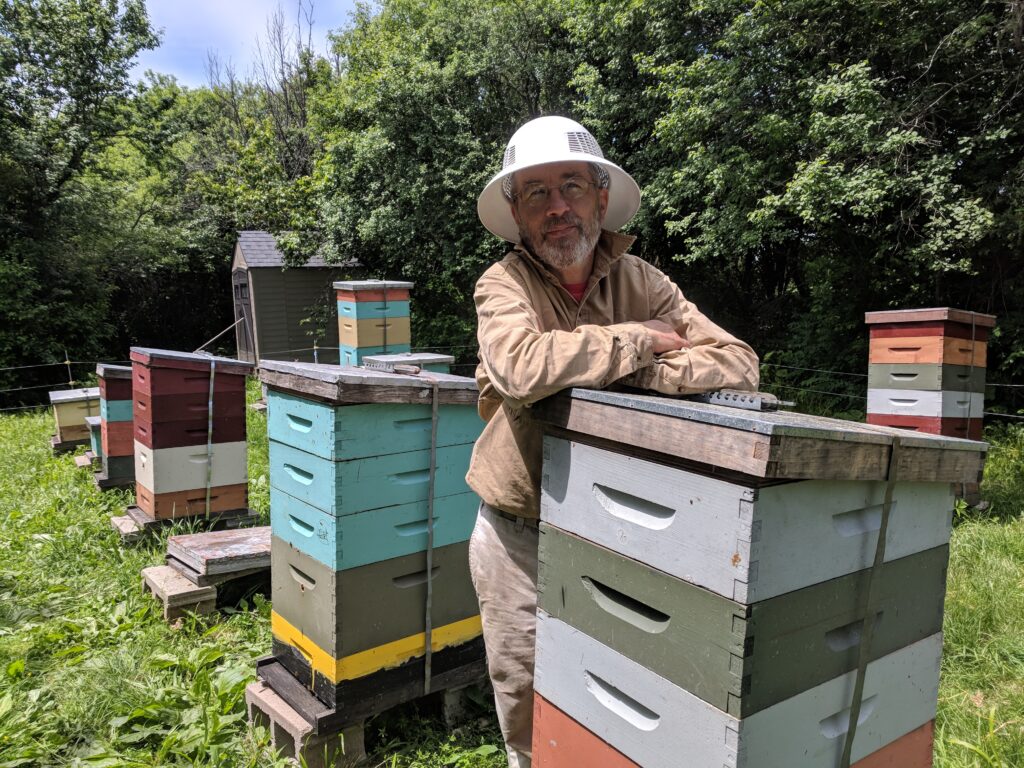
Ross Conrad, Dancing Bee Gardens – Middlebury
Ross learned his craft from the late Charles Mraz, world renowned beekeeper and promoter of apitherapy, along with his son Bill. Dancing Bee Gardens supplies friends and neighbors with honey and candles among other bee-related products. It features 5-frame nucleus bee colonies available each June, and provides bees for Vermont pollination in spring. Meet Ross
Holly Menguc, Tup’s Crossing Farm – Orwell
Tup’s Crossing Farm is a family owned dairy proudly shipping goats’ milk to Vermont Creamery. Meet Holly
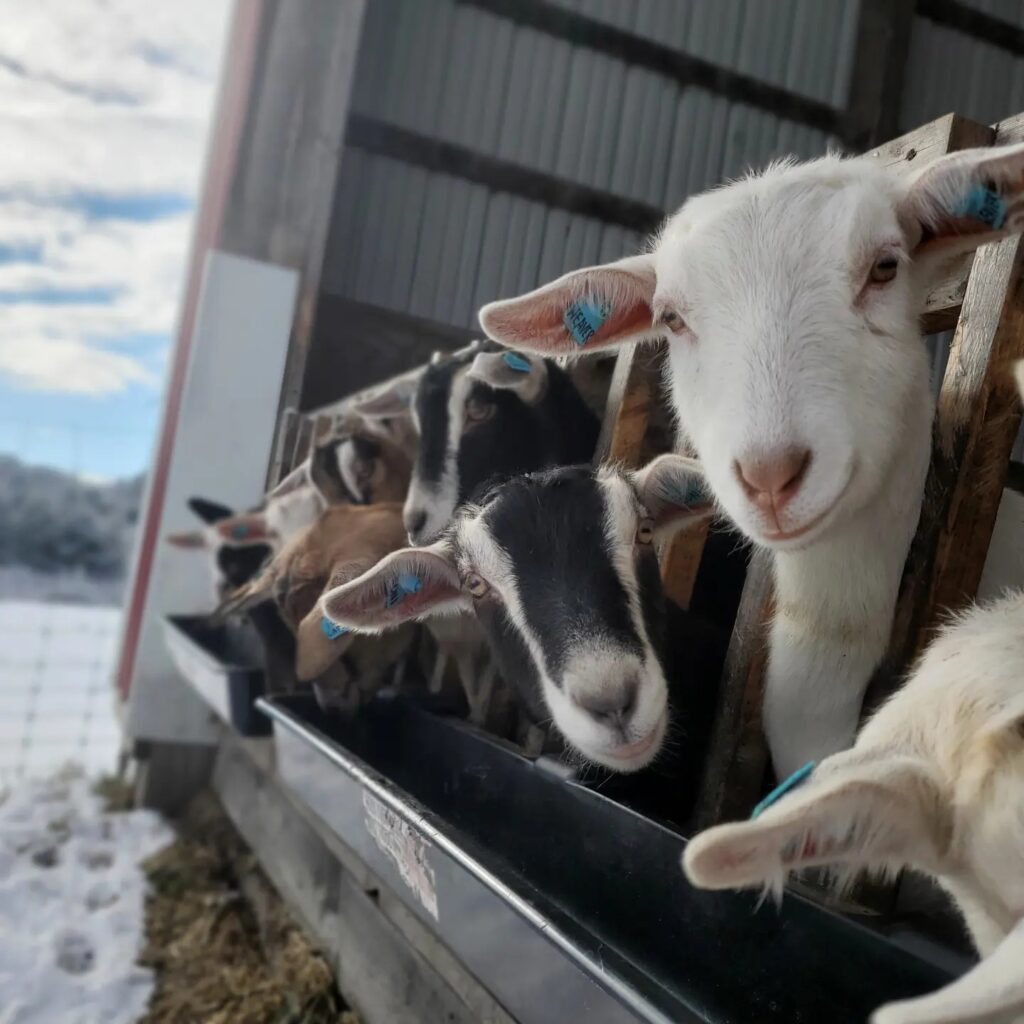
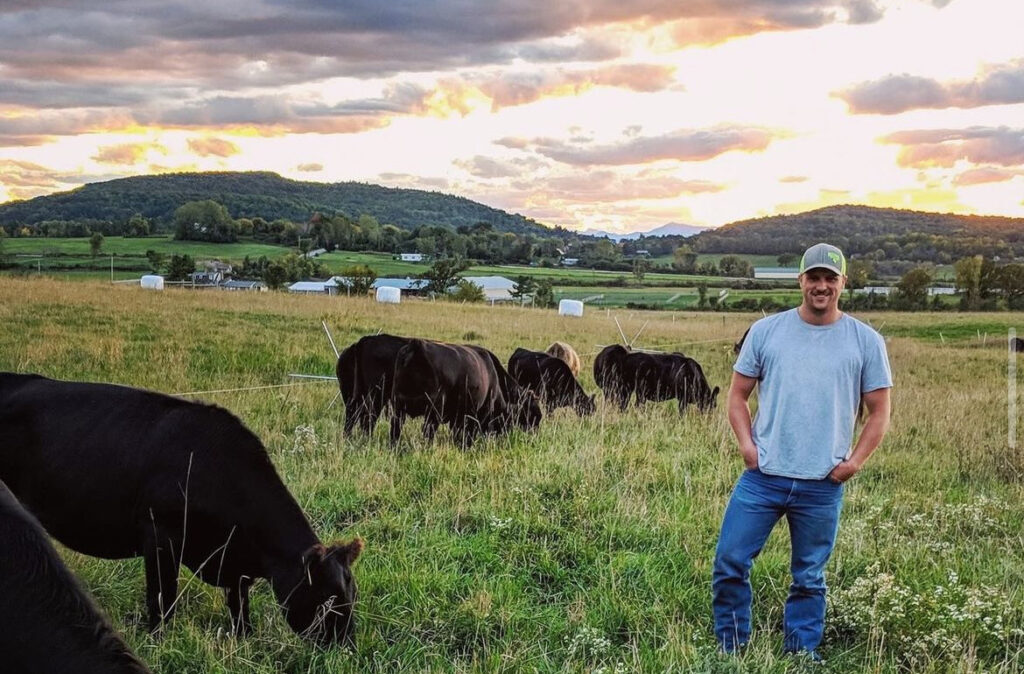
Steve Schubart, Grass Cattle Company – Charlotte
Grass Cattle Company raises premium grass fed and finished beef using animal welfare and regenerative agricultural practices in Charlotte, Vermont. They cultivate the connection between cattle, grassland, and soil to produce the finest quality grass fed beef on the plate, in the pasture, and for the planet. Meet Steve
Jill Kopel, New Leaf Organics – Bristol
Led by Jill Kopel, New Leaf has been growing high quality, deliciously fresh organic produce and flowers since 2000. They believe that kindness is a necessary nutrient, that beautiful places create a nourishing foundation for community connections, and that health and joy go hand in hand. As a gathering place for people through musical events, biking, flowers and food, New Leaf is a lively and welcoming farm with a deep commitment to the local food system. Meet Jill
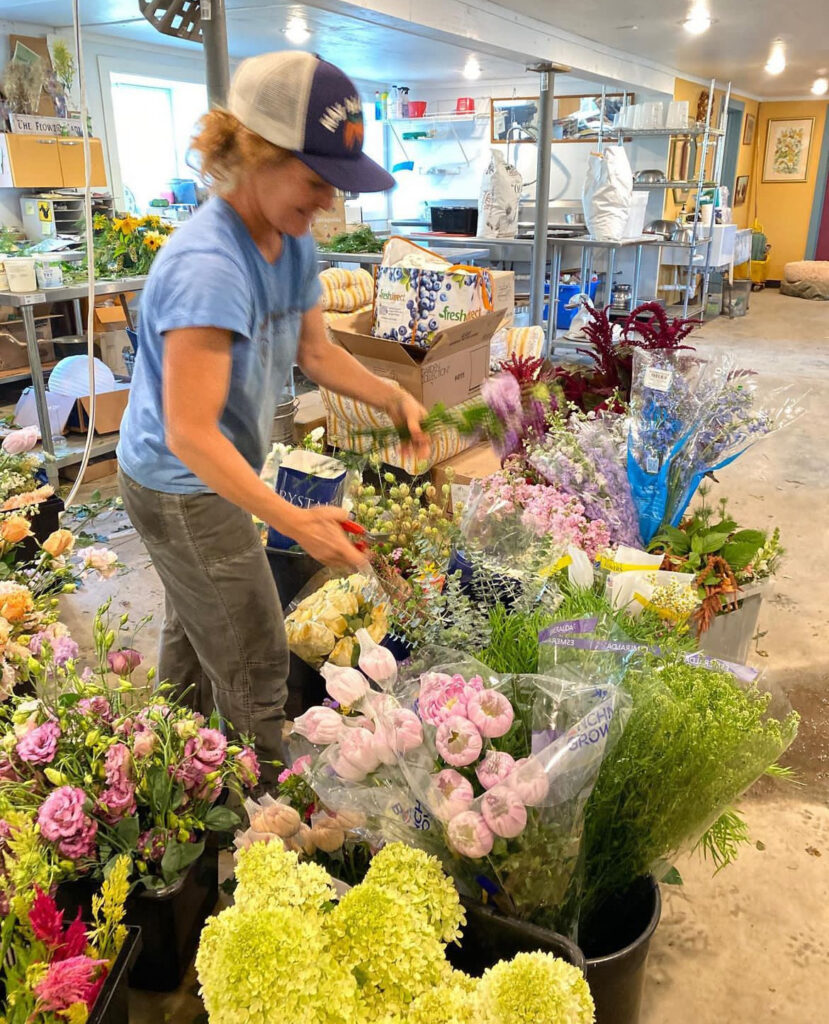
About the Champlain Valley Farmer Coalition
We assist all farmers in implementing innovative agricultural practices that enhance water quality, soil health, climate smart farming, and their economic resiliency in the Champlain Valley. We accomplish this through a positive, unified voice that provides targeted education and outreach to farmers and the public; advocates on behalf of farmers’ environmental interests; and collaborates with community partners to achieve common goals. To learn more about our mission and story, click here.
Our Partners
We are proud to partner with the Vermont Agency of Agriculture, Middlebury College, Hannaford Career Center (HCC) and high schools in Addison County to offer this internship program.
Questions?
Contact Brooke Small, CVFC’s Workforce Development Program Manager at brooke@cvfc-vt.com or 802-272-7817.
Enrollment
We are now accepting applications for Summer 2024!
Frequently Asked Questions
What is the program?
This 8-week internship is part of the Lake Champlain Sustainable Agriculture Program and is overseen by Champlain Valley Farmer’s Coalition in partnership with local High Schools and Middlebury College and funded by VT Agency of Agriculture.
What will I learn?
Learn about conservation practices, best practices for water quality, and other agronomy topics under the mentorship of one of our five farmers. Each of our partner farms runs a diversified operation and you will be matched to a farm based on proximity and interest.
Will I be paid?
Yes! After successful completion of the program students will receive a $400 stipend.
What else will I be required to do?
During the semester, interns will host a workshop or training each month, sharing what you have learned in your internship with students at your school.
What kind of environment will I be working in and who will I be working with?
This semester, we expect two students to be assigned to each farm (see above for a list). No experience with farm work or conservation techniques is needed. Be ready to learn through doing and explore topics that interest you with your mentor.
How many hours per week is this commitment?
The program is designed to be 2 hours per week for 8 weeks, but if you or your partner farm have different needs for more time and fewer visits. or vice-versa, this can be worked out with individual pairs. 16 hours total for the semester.
How will I get to my work site?
You will need to provide your own transportation to and from the farm. This is why we take location into account when matching you with another student and a farm.
